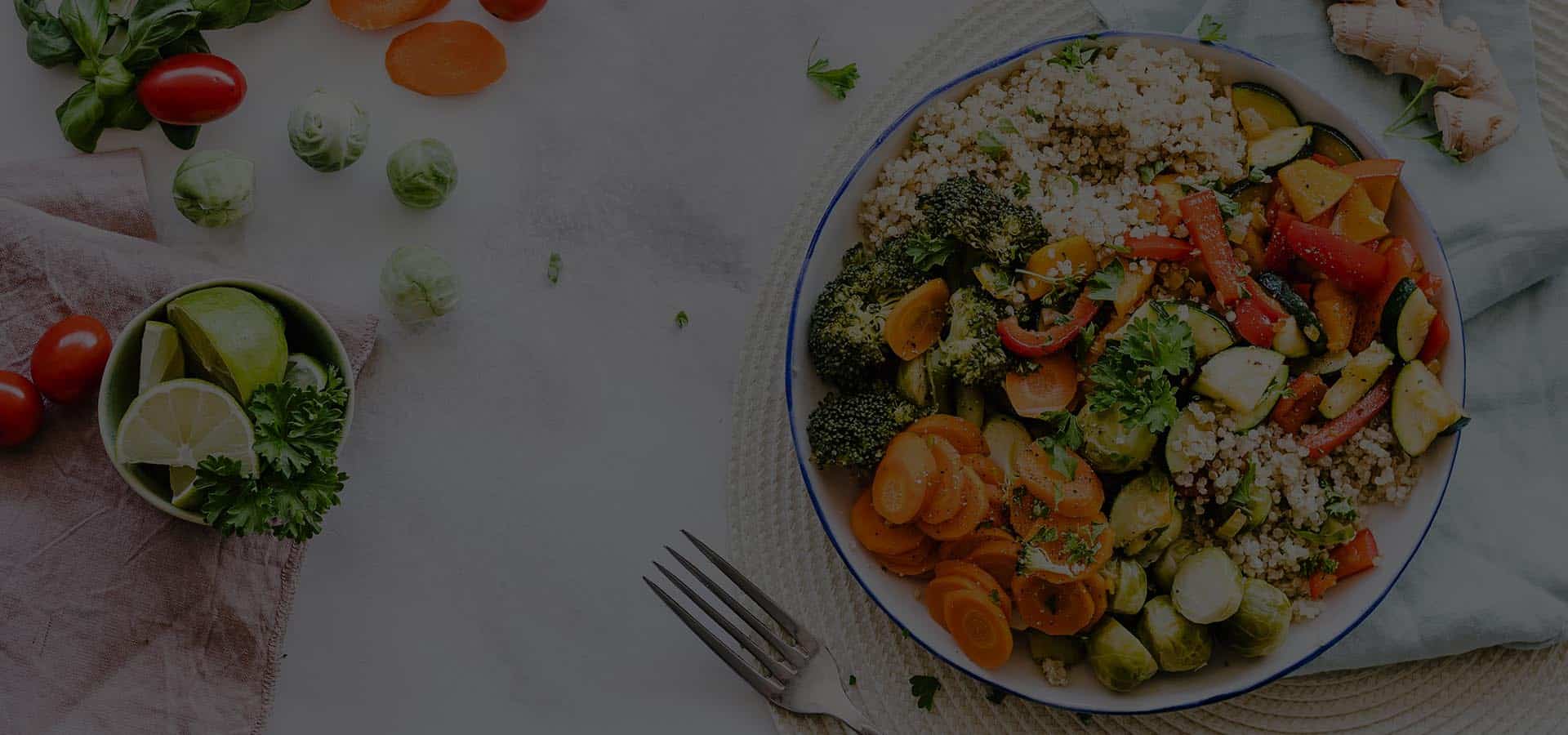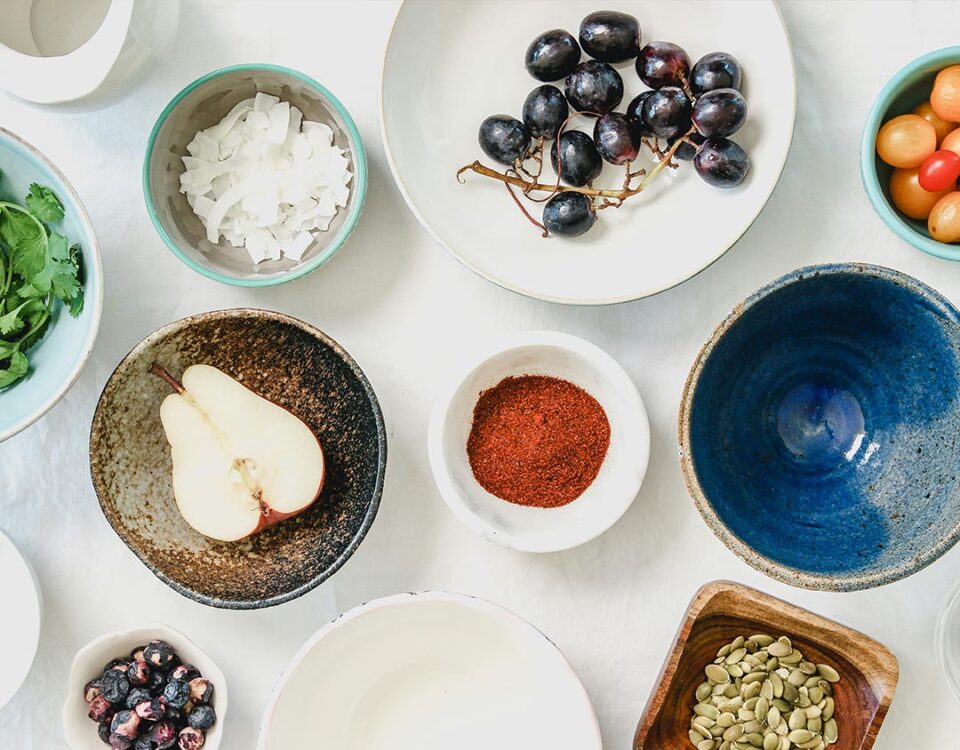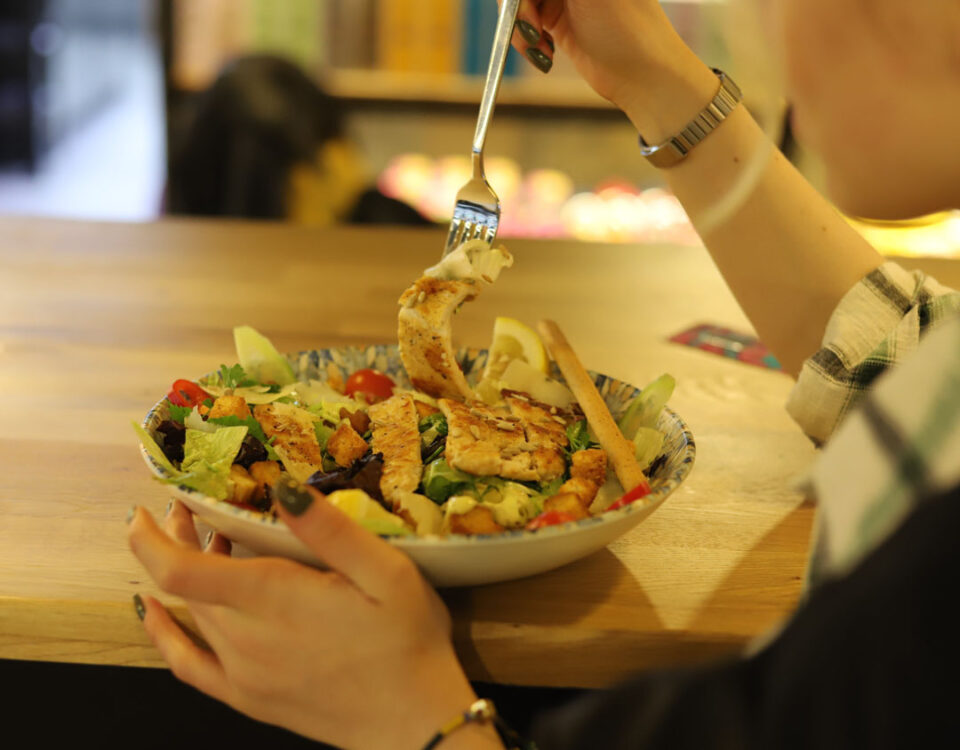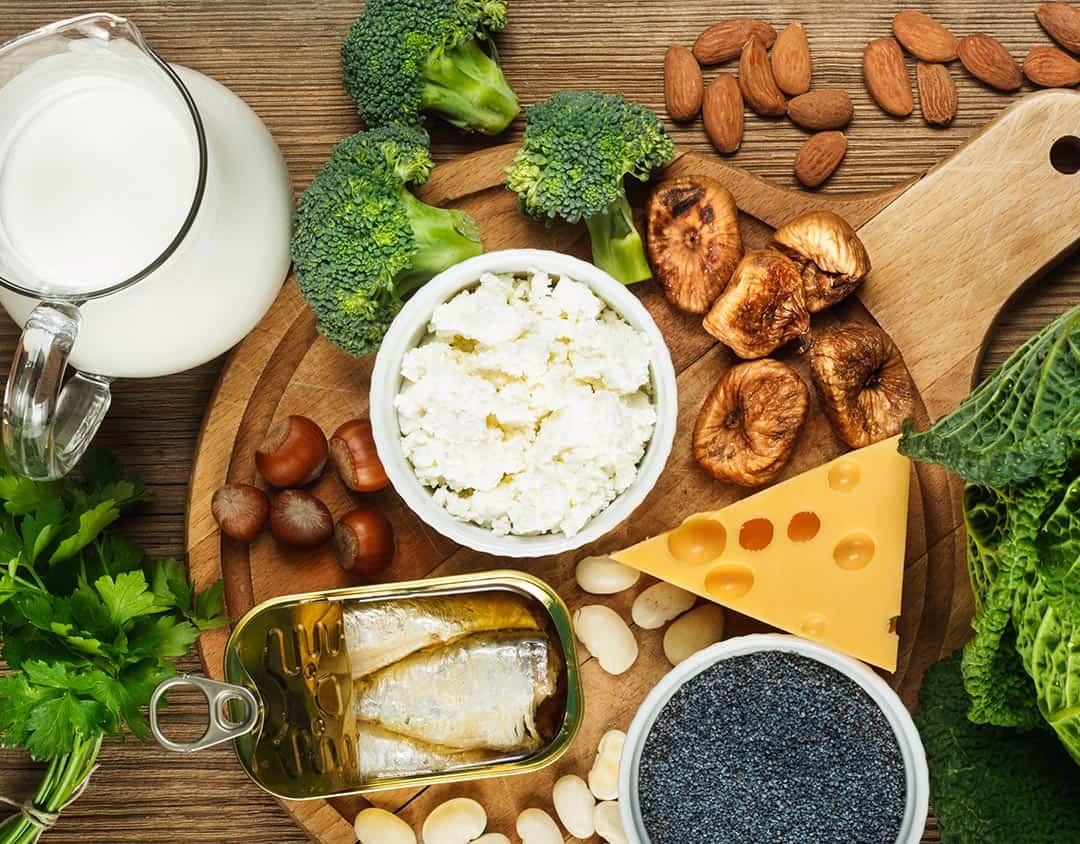
Are you getting enough Calcium and Vitamin D?
February 21, 2019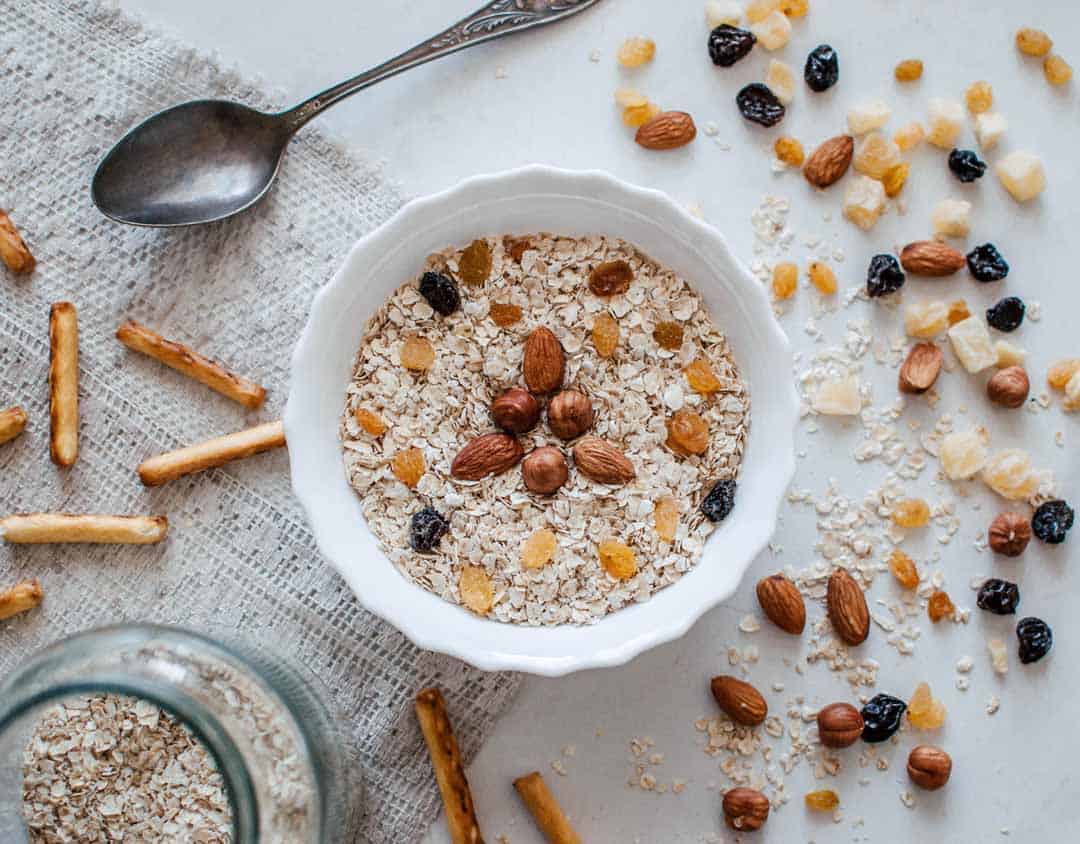
Fibre Fundamentals
October 31, 2019With the new 2019 Canada’s Food Guide encouraging the consumption of plant-based proteins more often, many people are interested in shifting to a plant-based diet.
T his is great for environmental sustainability, animal welfare, and our physical health! Plant-based diets are rich in nutrients that promote health and reduce the risk of chronic disease. It's important to note that a plant-based diet does not need to be plants-only in order to provide benefits. It simply means that the majority of our meals are comprised of vegetables, fruits, whole grains, nuts, seeds, and legumes. If we do choose to cut out animal products from our diet, we want to ensure that we are replacing them with something equivalent in nutritional value to make up for anything we may have lost.
Veganism is defined as "a philosophy and way of living which seeks to exclude—as far as is possible and practicable—all forms of exploitation of, and cruelty to animals for food, clothing or any other purpose; and by extension, promotes the development and use of animal-free alternatives for the benefit of animals, humans and the environment. In dietary terms it denotes the practice of dispensing with all products derived wholly or partly from animals." Keeping in mind that this is all "as far as is possible and practicable" in your life. If veganism is important to you and possible in your life, then we want to ensure that it is well planned to ensure you are getting all of the nutrients you need for your health. The following are seven of the nutrients that we need to pay closer attention to when following a vegan diet.
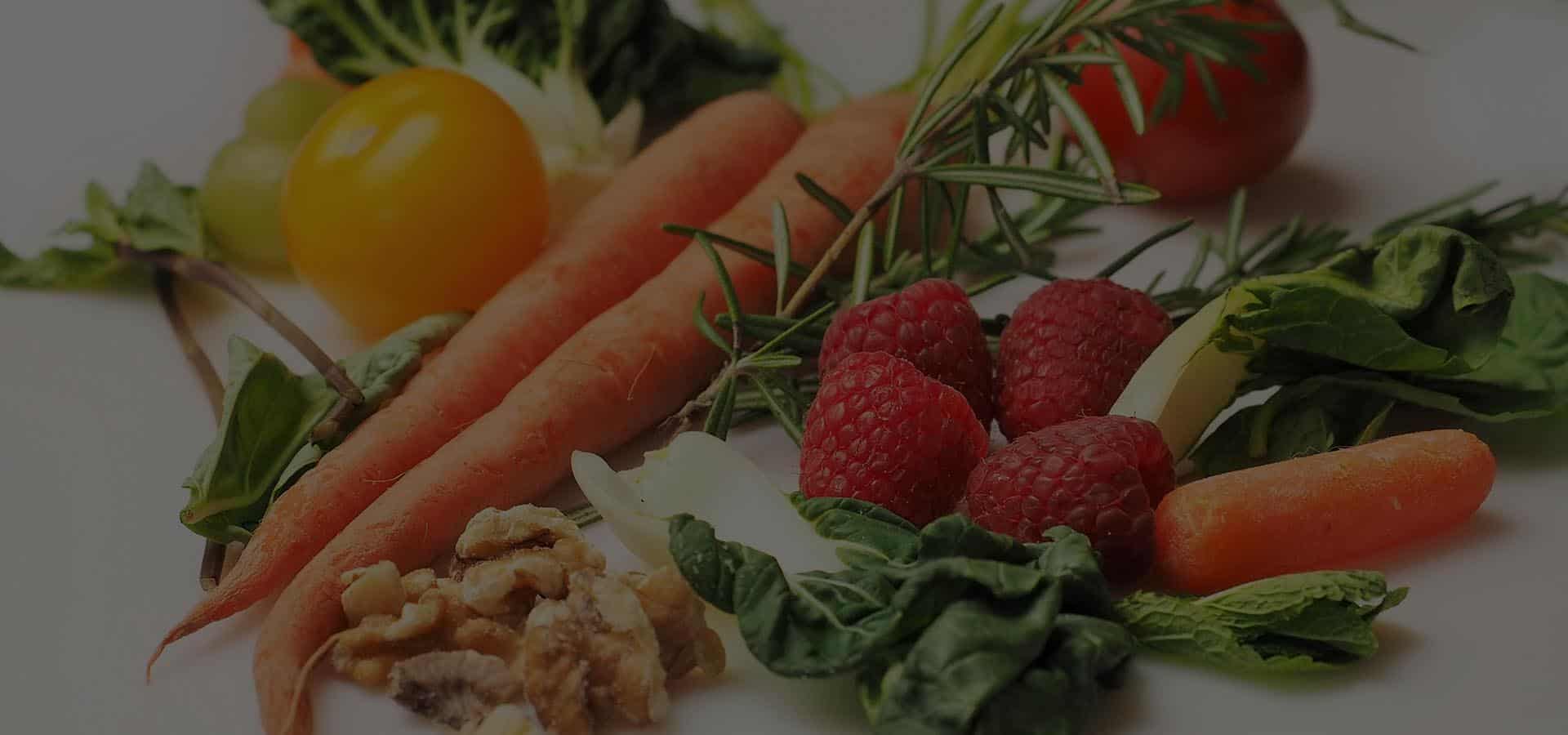
If do you choose to limit or avoid animal products completely and follow a vegan diet, your diet may require a little extra attention to ensure you are getting all of the nutrients you need for your health.
Iron
Iron’s main function is to bind and transport oxygen throughout the body. Iron deficiency can negatively impact brain and immune function. Iron is found in two forms: heme and non-heme. Plant sources contain non-heme iron, which is not as well absorbed as the heme iron found in animal sources.
Therefore, people following a vegan diet may require twice as much iron as the daily amounts recommended below to account for this lower absorption. So no, despite many claims online, it would be very difficult to meet all of your iron needs using spinach alone haha!
Men: 8mg Women: 18 mg (8mg after age 50)
Sources:
- Dark green leafy vegetables (e.g. kale, ½ cup) = 2 - 3 mg
- Lentils (¾ cup cooked) = 4.3 mg
- Tofu (¾ cup cooked) = 7 mg
- Soybeans (¾ cup cooked) = 6.5 mg
- Green peas (¾ cup) = 1.9 mg
- Dried fruits (¼ cup) = 1.6 mg
- Grain products like flour, pasta, and many cereals are also fortified with iron in Canada
Consuming foods rich in vitamin C will help with the absorption of non-heme iron. For example, add some tomatoes or salsa to your tacos, or include red bell pepper when making lentil soup.
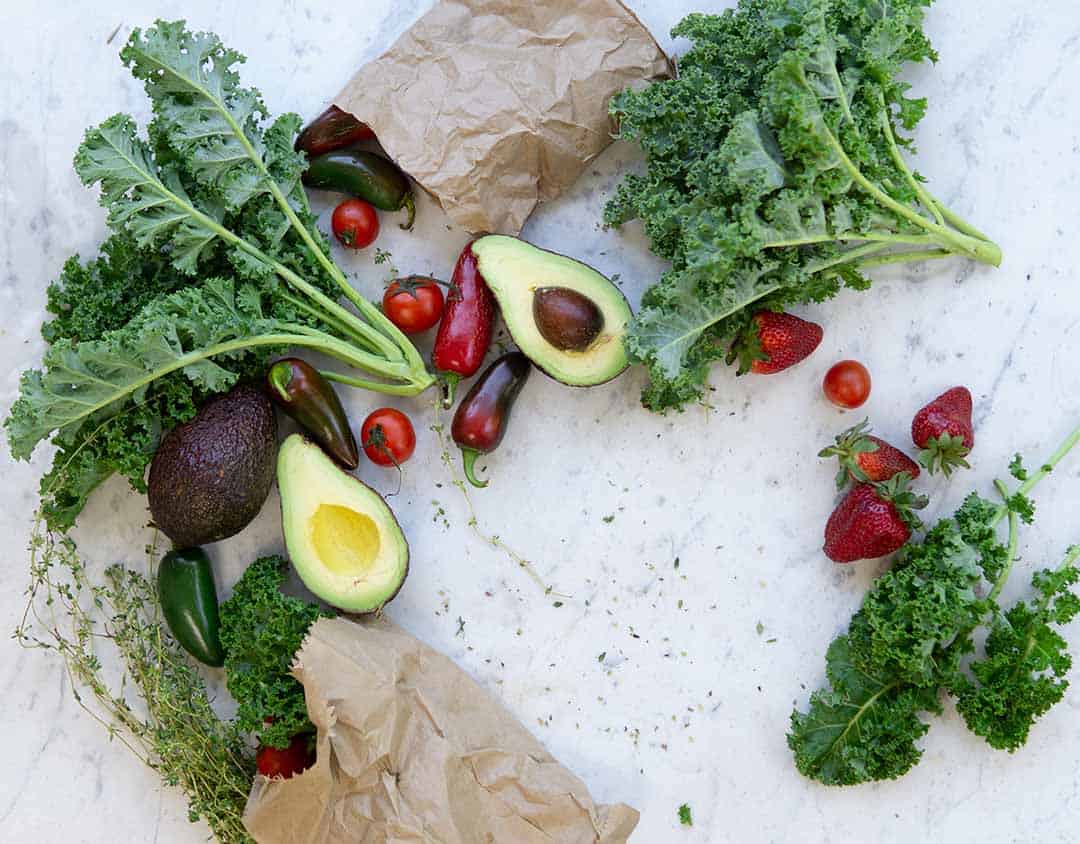
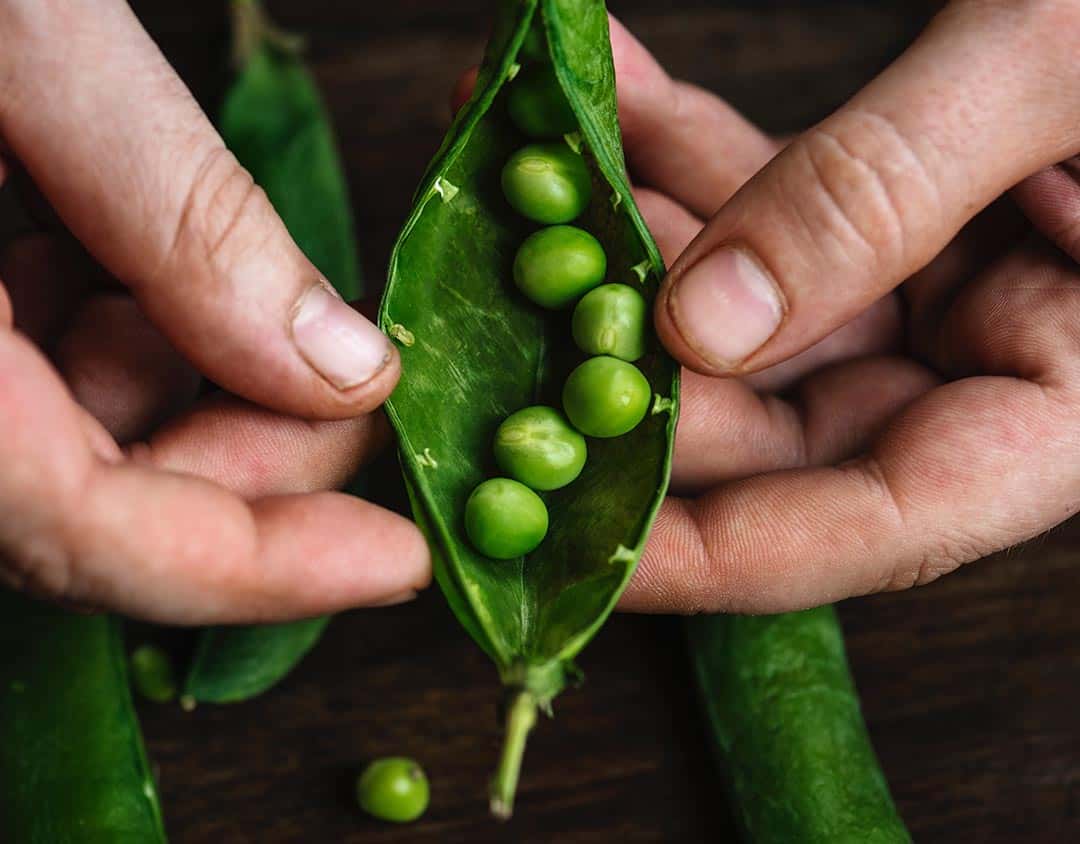
Vitamin B12
Vitamin B12 is essential for forming red blood cells and maintaining proper nervous system function. This vitamin is naturally found in animal products, therefore it is essential for vegans to ensure they have a reliable source of B12 in their diet. Getting enough B12 as a vegan can involve one of the following recommendations:
- Take a 1000 microgram (mcg) supplement, two or three times a week
- Or, take a daily supplement providing at least 25 mcg
- Or, eat two or three servings daily of vitamin B12 fortified foods, such as fortified nutritional yeast, veggie “meats”, cereals, and non-dairy “milk” (check the nutrition facts label)
As we age, our ability to absorb B12 diminishes. Therefore, it is recommended that everyone above 50 years of age, vegan or not, obtain B12 in the form of supplements or fortified foods.
Calcium
Calcium is the most abundant mineral in our body and helps make our bones strong. Calcium is also needed for proper nerve and muscle functioning. Although dairy products are a great source of calcium, you don’t necessarily need dairy to get enough of this nutrient.
How much do you need per day?
Men and women aged 19-50 & men 51-70 = 1000 mg Women over age 51 & men over age 70 = 1200 mg
Sources:
- Fortified plant-based ‘milk’ (1 cup) = 300 - 400 mg
- Tofu prepared in calcium sulfate (½ cup) = 260 mg
- Pinto beans (1 cup cooked) = 79 mg
- Collard greens (1 cup raw) = 52 mg
- Almonds (1/4 cup) = 93 mg
- Tahini (2 tbsp) = 130 mg
- Chickpeas (1 cup cooked) = 80 mg
- White beans (3/4 cup cooked) = 119 mg
- Bok-choy (1/2 cup) = 84 mg
- Kale (1 cup raw) = 90 mg
- Broccoli (1 cup) = 62 mg
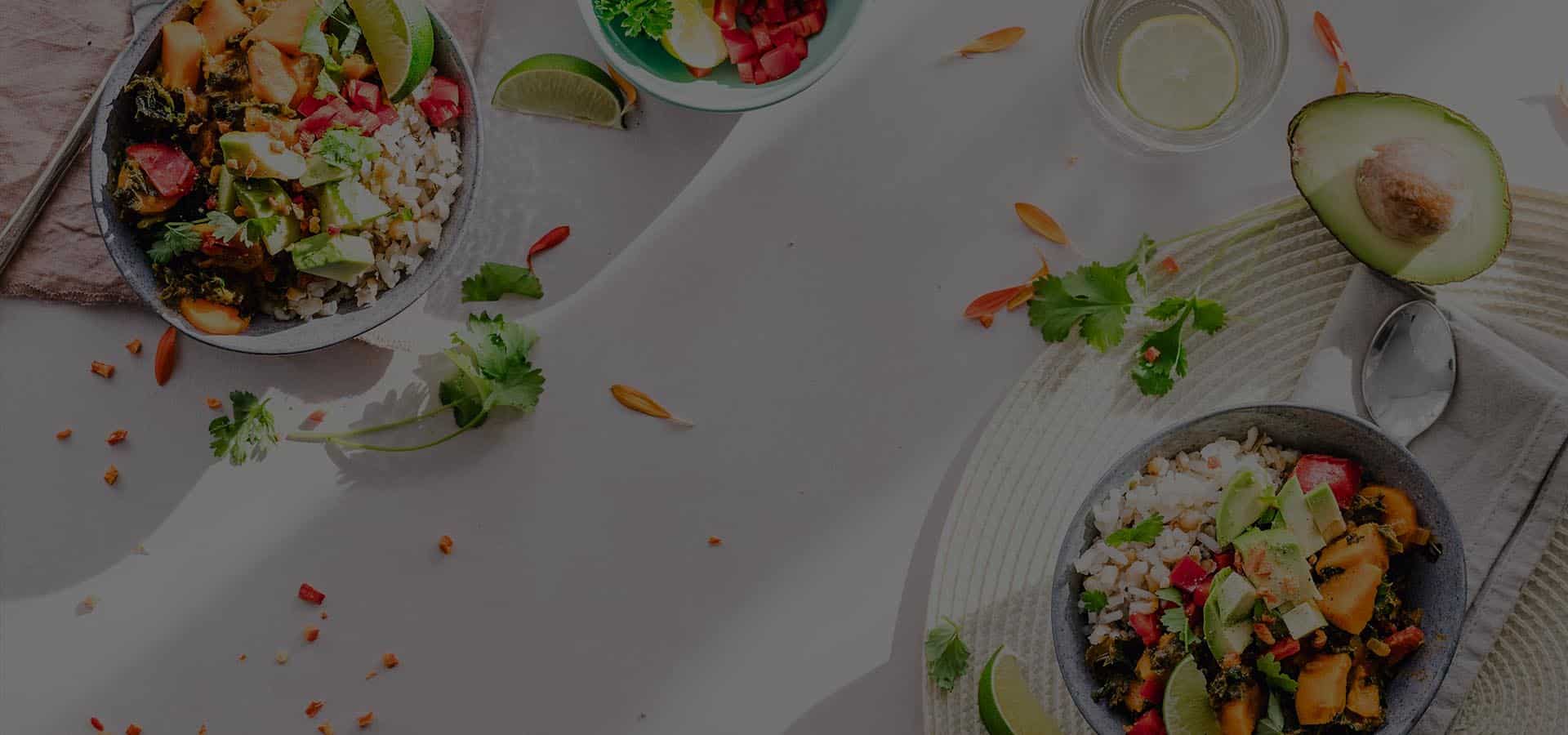
We can form this “sunshine vitamin” in our skin when exposed to adequate sunlight. However, the amount we can make in our skin decreases as we age, when we use sun protection, when we have darker skin pigmentation, or when we live in more northern climates, like Canada.
Vitamin D
Vitamin D helps maintain your immune system, muscle strength, and also aids in the absorption of calcium. We can form this “sunshine vitamin” in our skin when exposed to adequate sunlight. However, the amount we can make in our skin can be negatively impacted by the following factors: older age, darker skin pigmentation, using sun protection (which I highly recommend), and living in more northern climates, like Canada.
How much do we need?
15 mcg (600 IU) until age 70 20 mcg (800 IU) after age 70
Some products such as dairy alternatives are fortified with Vitamin D, however, food sources of vitamin D are limited. Therefore, it is recommended that all Canadians take a supplement containing 600-1000 IU daily.
For further information on calcium and vitamin D, check out our blog post here.
Zinc
Zinc is important for strengthening your immune system, helping to maintain healthy skin, and for proper wound healing. Similar to iron, zinc from plant sources is not as easily absorbed compared to animal sources. Protein can help to increase zinc absorption, so consuming plant-based foods high in both protein and zinc often (such as legumes or nuts) is a great choice.
How much do you need?
Men: 11 mg Women: 8 mg
Sources:
- Beans (¾ cup cooked) = 1 - 2 mg
- Lentils (¾ cup cooked) = 2 mg
- Oatmeal (1 cup cooked) = 2.3 mg
- Brown rice (1 cup cooked) = 1.9 mg
- Tofu (100 g) = 1.7 mg
- Tempeh (100 g) = 1.7 mg
- Cashews (30 g) = 1.7 mg
- Quinoa (1 cup cooked) = 1.6 mg
- Green peas (½ cup) = 1.4 mg
- Pumpkin seeds (1 tbsp) = 1.2 mg
- Brazil nuts (30 g) = 1.2 mg

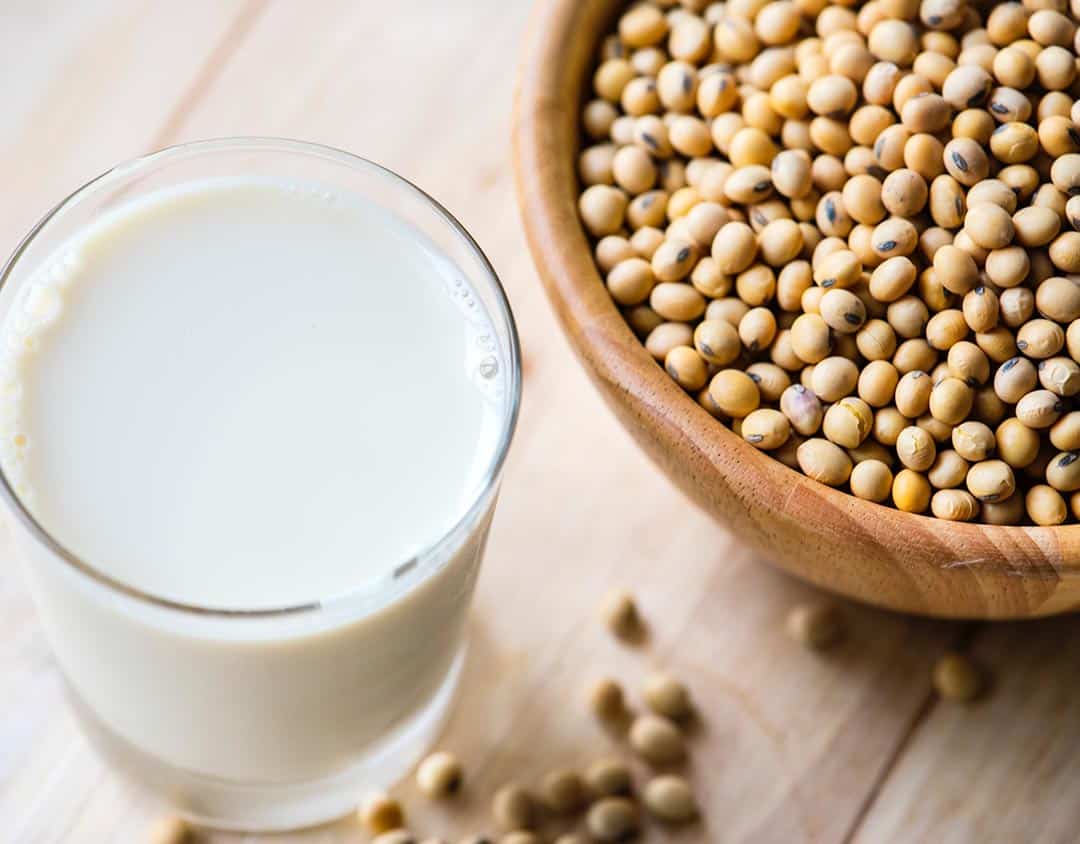
Iodine
Iodine is an important mineral that is used to make thyroid hormones. These hormones are essential for normal physical and mental development. It can be tricky to get enough iodine on a vegan diet. We only need a small amount, but our bodies don’t store it, so regular intake of this nutrient is necessary.
How much do you need?
Men and women: 150 mcg Stay below: 1100 mcg
Sources:
- Iodized table salt (1/2 tsp) = 150 mcg
- Seaweed, nori (3 sheets, dried) = 27 mcg
- Potato (1 medium, with skin) = 52 mcg
- Soynuts (¼ cup) = 60 mcg
- Beans (¾ cup cooked) = 20 - 40 mcg
- Bread (e.g. rye, whole wheat, 1 slice) = 18 - 25 mcg
Omega-3
Omega-3 fatty acids play an important role in brain and eye development, help to resolve inflammation and reduce blood pressure, and may protect against heart disease. There are many types, but the main three are alpha-linolenic acid (ALA), docosahexaenoic acid (DHA), and eicosapentaenoic acid (EPA). ALA is found mainly in plant based foods. Our bodies can convert ALA into the more biologically active omega-3 fatty acids, EPA and DHA, but at a very low rate. The best source of EPA/DHA is cold-water oily fish, but for vegans we can go straight to the source and get it where the fish do, microalgae! There are many vegan supplements on the market today that contain algal oil as a source of EPA and DHA.
How much do you need?
Men = 1.6 g ALA Women = 1.1 g ALA
Sources (in g ALA):
- Edamame (½ cup) = 0.3 g
- Soy milk (1 cup) = 0.19 g
- Beans (¾ cup cooked) = 0.2 g
- Flaxseeds, ground (1 tbsp) = 2.5 g
- Chia seeds (1 tbsp) = 1.9 g
- Walnuts (¼ cup) = 2.3 g
- Pecans (¼ cup) = 0.27 g
- Tofu (¾ cup) = 0.35 g
In addition to getting adequate amounts of ALA in your diet, you may want to consider adding a plant-based algae supplement containing ~500-1000mg of EPA and DHA to your routine.
Overall, enjoy a wide variety of plant-based foods while following a vegan diet and use the above information to round out your diet to ensure you are getting everything you need. If you have any questions or concerns about following a plant-based diet or how to incorporate the above recommendations, don’t hesitate to book a session with our Registered Dietitian here today!
If you are pregnant or breastfeeding, you may require more or less than the nutrient requirements we have provided here. Speak to a healthcare professional to ensure you are getting the proper amounts. Please note that this is for educational purposes only and does not replace medical advice from your medical doctor or dietitian. Always check with your doctor or pharmacist before adding in new dietary supplements as they may interact with your medications.
Written by Hannah Vogel, Katheryn Lu, and Liz Powell, RD
References:
- Dietitians of Canada. PEN Handout Collection - Food Sources and Nutrients (Canada). Practice-based Evidence in Nutrition® [PEN] 2018. [cited May 11th, 2019]. Available from: http://www.pennutrition.com. Access only by subscription. Click Sign Up on PEN login page.
- Food-nutrition.canada.ca. (2019). Canadian Nutrient File (CNF). Retrieved May 12th, 2019 from https://food-nutrition.canada.ca/cnf-fce/index-eng.jsp
- Melina, V. (2015). NutriSpeak - Vitamin B12. Retrieved May 12th, 2019 from https://nutrispeak.com/children-and-teens/vitamin-b12/
- The Vegan Society (1988). Retrieved Sept 27, 2019 from https://www.vegansociety.com/go-vegan/definition-veganism
- Tuso, P., Stoll, S. R., & Li, W. W. (2015). A plant-based diet, atherogenesis, and coronary artery disease prevention. The Permanente Journal, 19(1), 62–67. doi:10.7812/TPP/14-036
- Unlockfood.ca (2019). What You Need to Know about Zinc. Retrieved May 12th, 2019 from https://www.unlockfood.ca/en/Articles/Vitamins-and-Minerals/-What-You-Need-to-Know-about-Zinc.aspx

